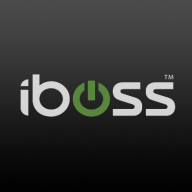


Cisco Umbrella and Forcepoint CASB compete in the cybersecurity space, providing solutions for network security and cloud application security, respectively. Cisco Umbrella seems to have an edge in deployment ease and user interface design, while Forcepoint CASB offers advanced cloud application security.
Features: Cisco Umbrella is renowned for its DNS-based protection which enhances security by blocking access to malicious sites even before users connect. Its web content filtering capability enhances productivity by managing access to non-work-related sites. The user-friendly management interface supports swift deployment and provides a comprehensive control panel for tracking web activities. Forcepoint CASB excels in providing visibility over cloud applications, allowing organizations to monitor and control Shadow IT activities. Real-time control features enhance security by responding instantly to threats. Its adaptive security policies dynamically adjust based on usage patterns and threat levels.
Room for Improvement: Cisco Umbrella could enhance integration with external threat feeds for a richer security posture. Users also wish for more detailed reporting to better track security incidents, along with improved malware protection and IPv6 compatibility. Forcepoint CASB might benefit from improvements in backend stability to provide a more seamless user experience. Users also call for better integration with Secure Web Gateway and a more effective consolidation of its multiple agents into a unified solution to reduce complexity in management.
Ease of Deployment and Customer Service: Cisco Umbrella is highly regarded for its ease of deployment in hybrid cloud settings, thanks to its straightforward setup process. Its customer support, while generally positive, could be enhanced to reduce response times, especially in email communications. Forcepoint CASB also supports straightforward deployment in cloud environments, with its customer service and technical support receiving good feedback. Enhanced flexibility and integration would further improve the deployment process for users.
Pricing and ROI: Cisco Umbrella's pricing is seen as fair, though occasionally higher than competitors. Its robust security features help in reducing operational costs through effective threat prevention, increasing the overall ROI for users. Forcepoint CASB is considered moderately priced and its capabilities in managing cloud applications are valued as cost-effective. Improved pricing transparency and alignment with performance could enhance the realization of ROI for users.
| Product | Market Share (%) |
|---|---|
| Cisco Umbrella | 11.1% |
| iboss | 2.5% |
| Forcepoint CASB | 1.5% |
| Other | 84.9% |


| Company Size | Count |
|---|---|
| Small Business | 6 |
| Midsize Enterprise | 6 |
| Large Enterprise | 5 |
| Company Size | Count |
|---|---|
| Small Business | 49 |
| Midsize Enterprise | 30 |
| Large Enterprise | 51 |
| Company Size | Count |
|---|---|
| Small Business | 6 |
| Midsize Enterprise | 2 |
| Large Enterprise | 3 |
Iboss offers a comprehensive cloud-based security platform valued for its scalability and autonomous features, ensuring robust security with easy deployment and management capabilities.
Renowned for its robust security architecture, Iboss integrates seamlessly within diverse networks, delivering efficient granular filtering and advanced content categorization. Its single pane of glass console provides ease of management, allowing rapid scalability suitable for rapidly deploying environments. Operates in BYOD setups due to inline filtering without device installation. Integration with cloud-based applications enhances user control, and features like SASE, SSL inspection, and ChatGPT risk protection stand as highlights. Despite its strengths, users have pointed out areas for enhancement like direct navigation in reports, SSL decryption, and better cloud integration while having room to improve data loss prevention.
What are the most important features of Iboss?The usage of Iboss spans educational institutions, specifically K-12, to enforce internet policies, protect data, and support remote work environments. It provides web filtering and security frameworks to ensure safe browsing. Its platform-as-a-service model offers flexibility for both cloud-based and on-premises requirements, integrating seamlessly to deliver enhanced security features suitable for various deployment needs including zero trust, CASB, and network security for work-from-home setups.
Cisco Umbrella provides fast-deploying DNS-layer security with powerful threat protection capabilities. Trusted by over 30,000 entities, it ranks highly in DNS security and effectively supports secure remote work environments.
Cisco Umbrella offers comprehensive DNS security, web filtering, and ease of use, enhancing network security through robust threat protection and malware prevention. It processes over 600 billion requests daily, making it a leader in its field. The seamless integration with existing infrastructures and cloud-based nature makes it suitable for remote and distributed work environments, ensuring consistent security throughout. Management is streamlined with a single-pane interface that simplifies administration, while in-depth reporting capabilities provide valuable insights for continuous monitoring.
What are the key features of Cisco Umbrella?Cisco Umbrella is widely adopted in industries requiring advanced DNS-level security to counteract malware, phishing, and cyber threats. Its ability to monitor and protect remote and roaming employees makes it an attractive option for sectors highly dependent on cloud services. By managing DNS queries and blocking harmful sites, Cisco Umbrella enhances cybersecurity across networks, providing an added layer of protection for businesses worldwide.
Forcepoint CASB (Cloud Access Security Broker) is a security solution which is designed to secure and monitor the use of cloud services within an organization. It helps organizations gain visibility and control over the cloud applications and services being used by their employees. Forcepoint CASB integrates with cloud service providers' APIs and employs various techniques such as traffic analysis, proxying, and API-based controls to provide security and visibility into cloud application usage. It can be deployed as a standalone solution or integrated with other security technologies within an organization's existing infrastructure.
Forcepoint CASB Features:
Forcepoint CASB Benefits:
Reviews from Real Users
Edwin Eze Osiago, Regional Solutions Manager (Sub-Sahara Africa) at InfodataReliable, says that Forcepoint CASB is "Easy to set up and offers good visibility".
PeerSpot user, Professional Services Coordinator at a tech vendor, writes that Forcepoint CASB "Needs better backend code, requires stronger technical support, and the initial setup should be easier" and also adds that "The most valuable aspect for us is the fact that the product seamlessly integrates with the Forcepoint DLP".
Mahendra Bedre, Lead at Infrastructure Solutions ALM, says that Forcepoint CASB's "Macro integration and IDs for credentials are great features; It is easy to use with a good layout".
We monitor all Cloud Access Security Brokers (CASB) reviews to prevent fraudulent reviews and keep review quality high. We do not post reviews by company employees or direct competitors. We validate each review for authenticity via cross-reference with LinkedIn, and personal follow-up with the reviewer when necessary.